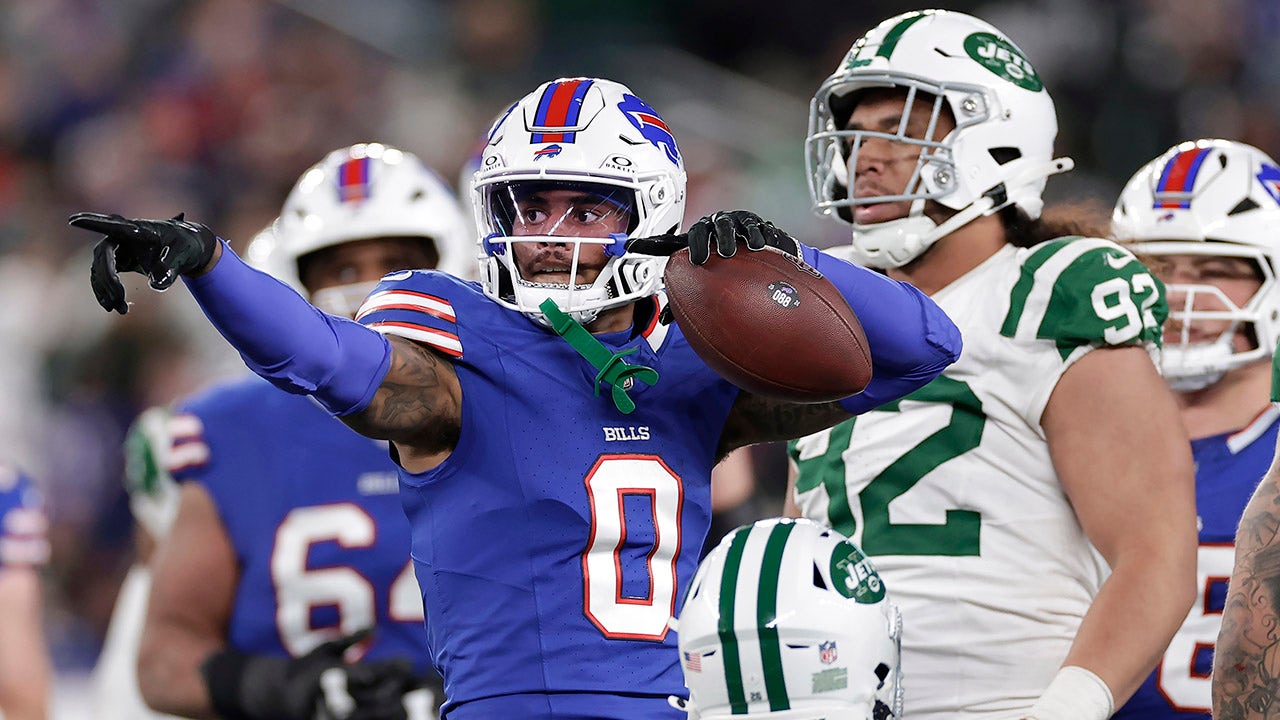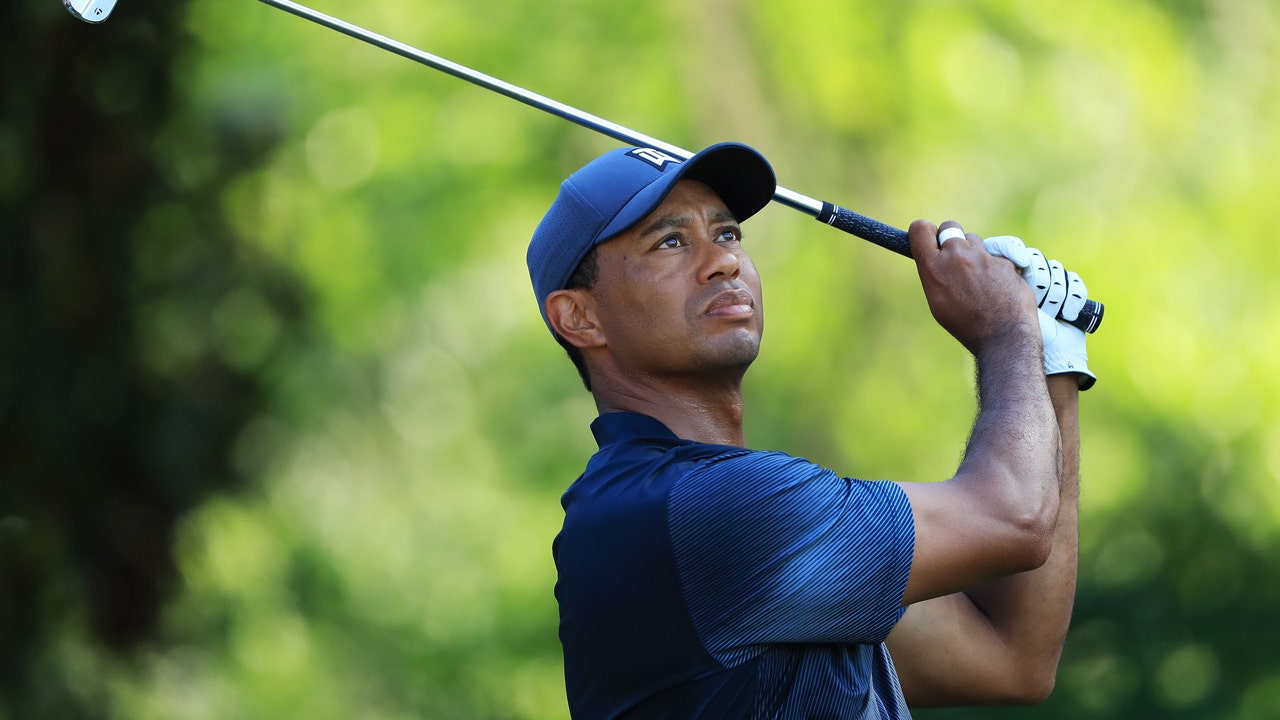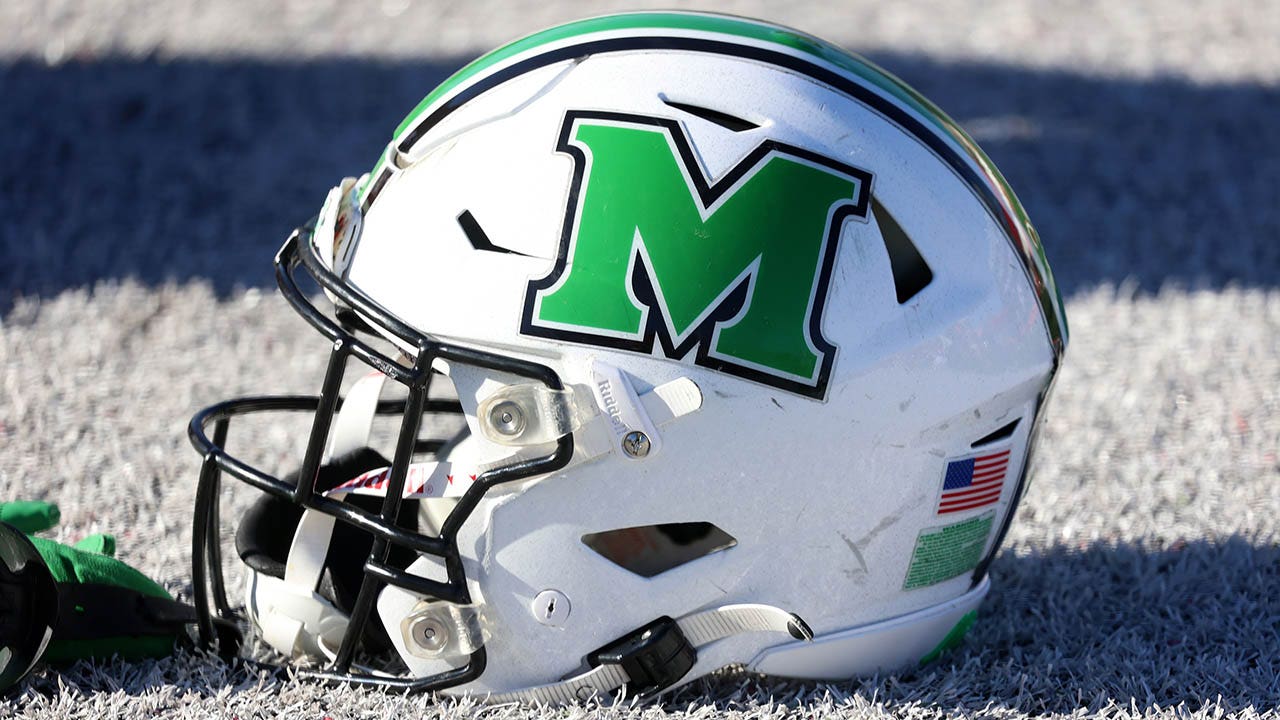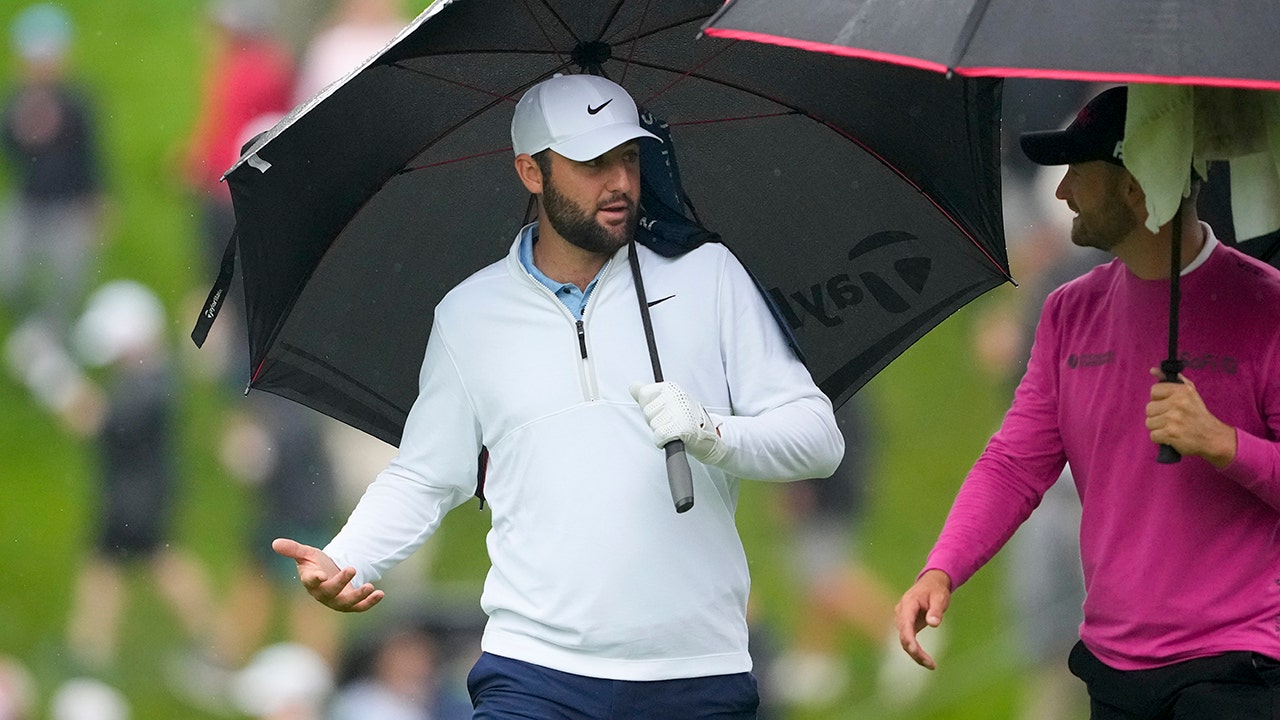Did you know Manchester United have agreements in place to sign superstars Kylian Mbappe and Vinicius Junior? Or that Sir Jim Ratcliffe, the man investing millions into the club, sensationally plans to bring Mason Greenwood back into the fold?
No? Well, that is because these stories are, in fact, complete nonsense.
But that has not stopped them gaining significant traction on social media in recent weeks.
Stories about Manchester United go viral everyday and many of them are completely made up.
As one of the world’s most-followed clubs, stories about them spread around the world in a way that is simply not the case with other teams.
Huge social media accounts post or repost falsehoods, plagiarise journalists, and use pictures taken by professional photographers without credit or context, let alone payment — and social media makes it possible for people to make money by publishing this type of content.
For some, fake news about Manchester United has become an income stream, and The Athletic has tracked down two people for whom this weird world constitutes a business opportunity, as well as two others who say they are losing out because football’s fake news frenzy is harming their livelihood of taking football photographs and selling them to media companies and image libraries.
“I’ve seen my photos taken, my name taken off my work and false quotes put over my photos by these accounts,” said a photographer who asked to remain anonymous to protect their job. “I’ve challenged them and been blocked. You feel like you’ve been mugged by someone making money out of my stolen work.
“They’re parasites.”
‘I create a clickbait related to the articles’
Valentine Denoni is a 24-year-old computer science student studying at Federal Polytechnic Oko in Anambra State, south-eastern Nigeria. He admits some of the stories he runs about Manchester United could be false, even those which have been “liked” thousands of times on Facebook and shared to many different groups and pages across the social media site.
He runs a page called FIFA 2022 WORLD CUP QATAR updates (United Pride), initially set up for the tournament but now regularly posting dubious United stories.
Early stories were typical of classic football “aggregators”, reposting content from elsewhere on the web, often stripping out nuances and caveats, making the story more interesting and more likely to spread online.
Often these have a tiny grain of truth in them.
For example, United forward Marcus Rashford was recently criticised for going on a night out in Belfast and missing training. There have been rumours he may end up leaving the club, with Paris Saint-Germain, previously interested in Rashford, a possible destination.
However, on the Facebook page, this has morphed into a typo-riddled story about PSG being set to pay a “huge fee” for the England star, something The Athletic’s plugged-in transfer experts have absolutely no reason to believe is well-founded.

One post on the page which heavily distorts a true story says Anthony Martial is banished from training, claiming his manager, Erik ten Hag, has accused him of “letting the team down” because “he has not been performing well”.

It is true Martial is out of training and unavailable for around 10 weeks — but the real reason is he is recovering from groin surgery.
United fans will not see him in squads over the next couple of months but not because of any disciplinary issues, a false accusation that could lead to abuse being directed at him on social media.
Social media does not just turn a blind eye to falsehoods, it actively encourages them, because fake transfer stories are by definition surprising, so are likely to get more likes and retweets than rehashed versions of truthful stories that can be read elsewhere.
Denoni’s Facebook page also posts stories that have no truth whatsoever, such as a post saying Ratcliffe is lining up “the largest offer in history” to sign Kylian Mbappe.

The Athletic tracked down Denoni and he agreed to speak to The Athletic on the phone.
“I get my articles from many sources but create a clickbait related to the articles,” he said.
Some are rehashing the genuine stories about Manchester United that crop up every day.
When pressed, Denoni, who calls himself a “hardcore Manchester United fan”, is unrepentant.
“Even though some of it’s fake, I just work for the views. Just like every other person out there.”
Many of these stories all across social media are often accompanied by images taken by professional photographers but they do not receive a penny when their work is used.
One says social media sites thrive off engagement and are incentivised to get more and more eyeballs on their product, which means things like copyright law can fall by the wayside.
“Instagram needs photographers, photographers don’t need Instagram,” the photographer said. “It’s so frustrating.”
Meta, the parent company of Facebook and Instagram, was contacted for comment but did not respond.
‘It is too late now to change or delete it’
A more innocuous example of Manchester United fake news provides an insight into the mindset of the “aggregator accounts” which repurpose news reported by genuine journalists and pump out huge volumes of other content relating to the club to try to build a following.
As well as breaking news, many of these accounts get engagement by constantly posting other club content like photos, memories of famous games and quotes from club legends.
Recently, a quote went viral which purported to be from former United forward Robin van Persie, in which he not only praised United but criticised his previous club Arsenal.

This particular tweet by ‘Manchester United Forever’ has been seen almost three million times, and has been republished many times beyond that across Twitter, Facebook, Instagram and doubtless in other places that journalists cannot see into, such as private WhatsApp groups.
But the quote is fake. Van Persie never said those words.
The Athletic asked ‘Manchester United Forever’ if they knew this.
“We took it from one source online and posted it,” the account said. “We didn’t check if it was true or not but now we see that it is slightly different to what he said truthfully.
“But we guess now is too late to change or delete it, we have to let that go…”
This fits a pattern, with material being endlessly recirculated without it being verified and it is often the misinformation that goes viral.
Many other stories are obviously fake, such as a rumour — spread by a different account — that has been widely read across Facebook that rising star Kobbie Mainoo was unavailable for an FA Cup tie because he had a maths exam.
Having turned 18 in April, Mainoo has finished his academic studies, and besides, schoolchildren in the UK sit their formal exams in May and June, so this is demonstrably nonsense.

‘People are hustling’
All of Denoni’s social media posts link to his blog, which runs adverts via the Google Ads platform. These ads generate cash and the more people who see them, the more he makes.
Rehashing information that is already out there in credible outlets is not a great recipe for going viral. But breaking ‘news’, by simply making things up, generates more clicks.
Although he acknowledges that not all the information he shares about the club he says he loves is accurate, he claims he has a good reason for doing this — making money for his family.
“I need to push for more for my family,” he says, explaining that he is supporting his siblings following the death of a family member. Using his computer science expertise has enabled him to find a very lucrative niche.
“I have no option,” he added. “It’s just to save up some funds. At least I am not a scammer.”
He disputes the accusation his stories are fake, preferring the term “clickbait”, and says he carries out “research” before writing.
He says recently he has been making about €2,000 (£1,700, $2,200) per month, far higher than the Nigerian average.
“People here are suffering,” he says. “People are hustling too.”
Fake news universe
Denoni is far from the only person making money out of sharing dubious stories about Manchester United on social media.
‘Manchester United True fan club’, a page with almost 100,000 likes and followers, recently revealed the ‘BREAKING CONFIRMED NEWS’ that Real Madrid and Brazil forward Vinicius Junior will be joining Manchester United.
This is nonsense and a bit of further digging reveals the social media post links to a page on a website called ‘365NewsInfo’. This is a larger and more sophisticated operation than Denoni’s Manchester United-focused blog.
It looks a little more like a genuine news website, with pictures and a smattering of rewritten genuine news mixed in with the outright falsehoods.
Like United, Arsenal have a huge global fanbase with an insatiable appetite for news, particularly transfer gossip. But neither signed a player in a January transfer window which was unusually quiet, as Premier League clubs grappled with the league’s Profit and Sustainability Rules.
The website, though, has “broken” lots of fake Arsenal transfer stories about players including Jamal Musiala, Michael Olise and Jarrod Bowen.

The site goes beyond football, seemingly happy to pump out content about any topic the internet is interested in, including the NBA, the NFL and Taylor Swift.
In this case, it is not possible to work out who is behind it, although there are some indications it might lead back to Vietnam.
Two million followers
The Athletic spoke to another person making money posting dubious news about Manchester United — this time on a far larger scale.
A page called ‘Manchester United fans’ is “liked” by 1.3 million people.
This is not quite as absurd in its relentless falsehoods as some of the aforementioned sites and there are various rehashed credible news stories about United in there, as well as facts, photos and quotes.
However, there is also a good deal of complete nonsense.

Erling Haaland leaving Manchester City for their cross-city rivals would be one of the most sensational transfers in history if it actually happened — but there is absolutely no indication whatsoever the link is genuine.
The amateurish post features a very old picture of Haaland when he had short hair, photoshopped onto a Manchester United shirt from many seasons ago.
Often it can be hard to tell where these posts originate. They take on a life of their own and are shared in massive Facebook groups about the club, some of which have as many as a million members.
The Haaland example falsely cites journalist Fabrizio Romano as breaking the story.
Unlike other United pages, this one makes no effort to hide who is behind it. Listed in the ‘about’ section is an email address, giving the name of Irsen Ibi, an Albanian based in New York.
In a brief phone conversation with The Athletic, Ibi confirmed he was behind the page.
Pushed on the page’s falsehoods, he said he saw the Haaland post in another Facebook group — falsely citing Romano — and simply shared it again.
Again, it is the same pattern, of these pages citing each other, or falsely attributing a story to a credible source.
Ibi says he spends about 20 minutes a day updating the page and it is a valuable income stream.
Rather than linking to a website running ads, he has a different business model — he encourages “collaboration” with brands that want to advertise through his huge page, though would not be drawn on which companies pay him, or how much they pay.
Ibi runs another page called ‘Manchester United FC News Now’, which shares identical content and has a similar number of followers, meaning Ibi broadcasts directly to more than 2 million Facebook users.

This means his pages have a combined reach far bigger than several Premier League clubs, despite the fact much of its content is false.
But these sorts of pages are where a lot of fans around the world are getting information about their club.
Does it matter?
The pressure of being a Manchester United player can be intense, especially in the age of social media, when players are flooded with negativity after a bad performance. This is not helped when fans see stories about players that are fake.
Social media companies seem to be doing little to stop it.
Facebook does have rules against sharing misinformation but these generally apply to weightier issues like disputing the medical evidence on Covid-19 vaccines or the fact humans cause climate change.
Football is rightly viewed as somewhat trivial compared to these issues, although the proliferation of fake news clearly has negative consequences for players, journalists and photographers.
Manchester United want to address some of the issues involved and are set to launch a “social media community code” aimed at promoting positive and safe engagement online. This comes after a growing number of posts were identified as being abusive across their social media channels. Last year a total of 2.6 million posts were flagged as being racist, homophobic, abusive or discriminatory.
“Players see what is written, not where it came from,” says former Manchester United assistant manager Mike Phelan. “Players need educating in understanding that false news exists, that someone might have it in for them.”
The agent of one Manchester United player says the situation “will never change”.
“Social media companies don’t care or they pretend they do but they don’t,” the agent added. “I don’t think they can actually stop and monitor the billions of people on the channels. It’s out of control and with AI (artificial intelligence) will only get worse. I fear for the next generation.”
The agent was also sceptical that clubs will do much about the issue because they prioritise “engagement” on social media, even if much of that engagement is toxic or based on falsehoods.
Although The Athletic managed to track down two of the people making money from fake news about Manchester United, there are many out there who are more careful about covering their tracks.
For countless other accounts, it is impossible to know who is behind them, and who is pumping out fake Manchester United news every day and making a career out of it.
(Top photos: Alex Dodd – CameraSport via Getty Images, Ash Donelon/Manchester United via Getty Images, Martin Rickett/PA Images via Getty Images; design: Eamonn Dalton)






